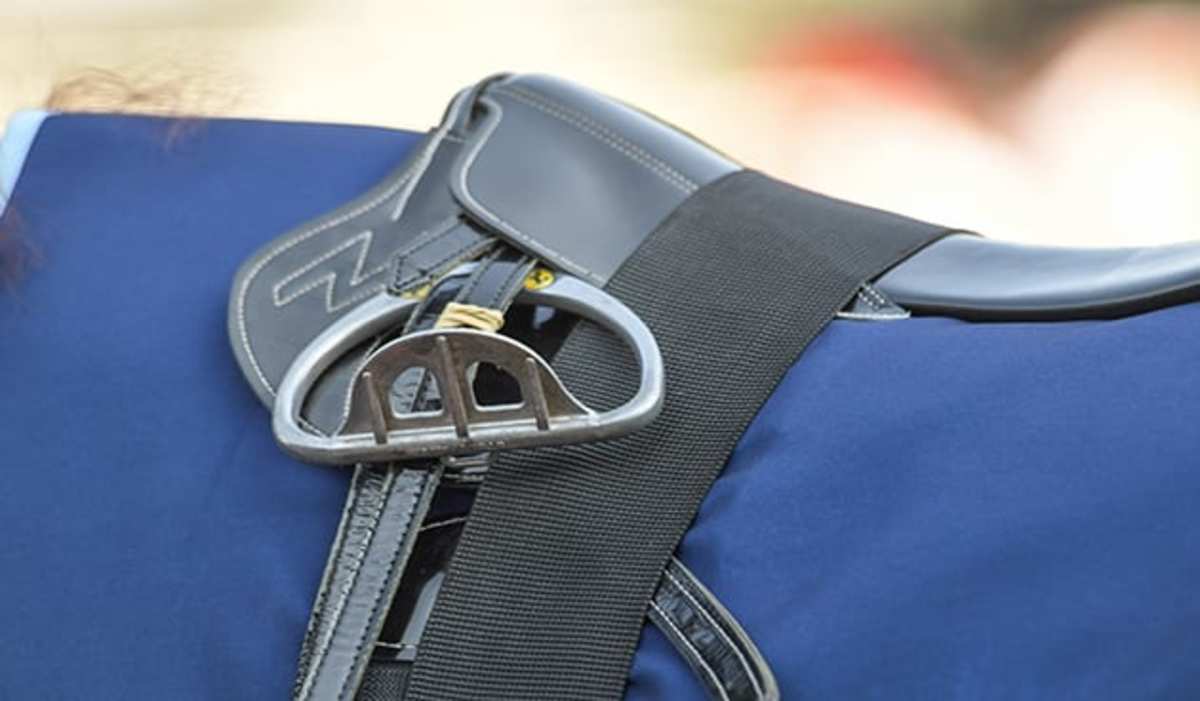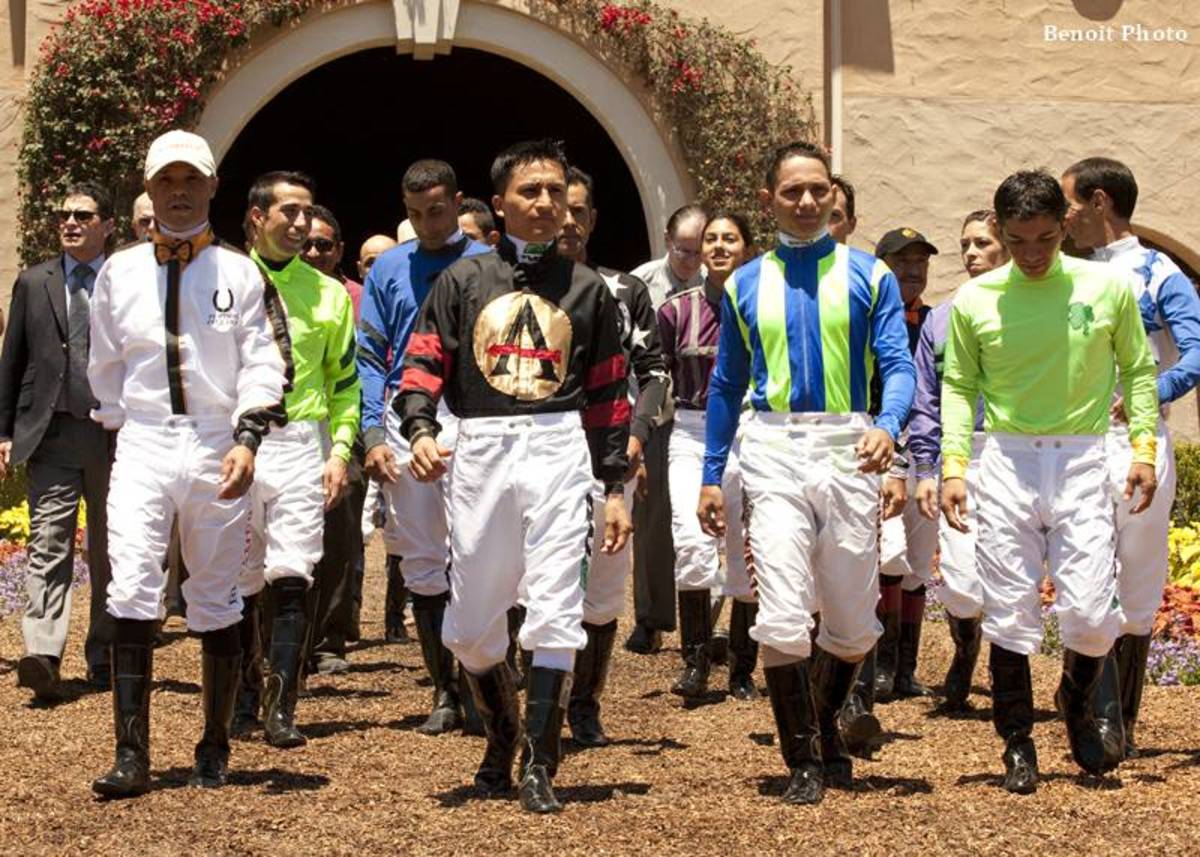We can only guess how much the weight carried in a race affects a horse's performance. All other things being equal, a horse that carries 120 pounds in a race will have an advantage over one carrying 123 pounds. Maybe it's a length, maybe more, maybe less. But it is an advantage.
That's why racing officials everywhere should pay heed to the ruling against Alexander Crispin, the Eclipse Award-winning apprentice jockey of 2020, for riding under his assigned weight in a mid-January race at Laurel Park in Maryland.
As Maryland Racing Commission administrative steward Adam Campola said, “There are integrity issues.”
Here's the timeline in the Crispin case.
-In early to mid-January, there were rumblings going through the Laurel jockey colony that Crispin – who already has an edge over his fellow riders with a five-pound apprentice allowance – was allegedly weighing in after a race under the weight he was assigned to carry. Jockeys (including saddle and weighted pads or lead weights if necessary) are weighed by the clerk of scales before a valet takes their saddle out to the paddock.
-Stewards met informally with Crispin and clerk of scales Frank Saumell on Sunday, Jan. 10, and had what Campola said was a “discussion” on the subject. “We had heard the rumors,” Campola said, “but there was no proof.”
-After the meeting, stewards worked with Maryland Jockey Club management to turn on the security cameras in the TIPS Restaurant at Laurel, where the jockeys and the weigh-in scale had been relocated as part of the COVID-19 protocols. Starting on Jan. 15, Campola said, the cameras were able to capture on video and record the weights of riders as they weighed out and in before and after a race.
-On Saturday, Jan. 16, after the final race of the day, Campola said he was getting into his car when he received a call from Saumell. “He said, 'Adam, I've got a problem here,' and told me what had happened.”
Crispin's mount, Alpha Queue, who finished third in the seven-furlong race, was assigned 115 pounds, but after the race came in closer to 110, Saumell told Campola.
Campola asked Saumell – who works for the Maryland Jockey Club – to have track management retrieve video of Crispin on the scales before and after the race. According to Campola, officials produced images from the security cameras that showed the discrepancy.
-A hearing was conducted on Feb. 24 (an attorney hired by Crispin asked for extra time because of his workload). Alpha Queue was disqualified and purse money redistributed. During the hearing, Campola said, Crispin offered no explanation for the discrepancy in weight.
-A ruling issued early this week said Crispin was being suspended 30 days and fined $1,000. For the final 10 days of the suspension, Crispin will be allowed to work horses in the morning. The suspension took effect on Monday, March 1.
“We were disturbed by this,” Campola said. “It doesn't sit well. We really had no guideline (on the extent of the penalty), so we called around to different places, but I didn't get anyone to say this has happened to them before. In the end, we thought it was a pretty fair penalty.”
Saumell is not suspected of any wrongdoing, Campola said.
There have, in fact, been a few cases of jockeys weighing in after a race with a lower weight than they registered just before the race. And keep in mind that, typically, riders come back after a race weighing more. In Kentucky for example, a rider is permitted an additional six pounds after riding in a race (three pounds for protective gear like safety vest, helmet and goggles and three pounds for rain, dirt or mud splattered or caked on their clothes).
In 1990 at defunct Bay Meadows in Northern California, jockey Ricky Frazier received a six-month suspension when he weighed in three pounds light after winning the $250,000 Final Fourteen Stakes by a nose.
In 2018, jockey Matt Garcia was suspended seven days by stewards at Los Alamitos in Southern California for twice weighing in about two pounds under his assigned weight.
In the 2010 Belmont Stakes in New York, Uptowncharlybrown was disqualified from fifth place when an eight-pound lead pad slipped off from underneath the saddle and saddle towel during the running of the race, causing jockey Rajiv Maragh to weigh in well under the 126-pound assignment. Trainer Kiaran McLaughlin accepted the blame for that mistake.
How could a jockey and his or her equipment weigh less after a race than before? Jockeys and horsemen I spoke to provided some insights but asked that they not be named.
One way is for a jockey to slide lead weights into his or her boots before the race and then discarding them. Another is for a rider to gorge on a meal before getting weighed pre-race and then “flipping,” or self-induced vomiting.
Finally, there have been suspicions of jockey valets removing lead weights from the slots in saddle pads after the jockey weighs out pre-race. But in many jurisdictions, valets draw numbers to determine which horse they help saddle, so are not regularly assigned to their jockey's horse.
In all of these instances, the riders are going to depend on a clerk of scales who gives a cursory glance at the weight as jockeys quickly step on and off the scale, often with the indicator arrow still moving. Some clerks of scale have gotten in trouble for allowing incorrect weights post-race, but in these cases they usually involve riders who are unable to make assigned weights and are several pounds overweight, even after the safety equipment and dirt/mud allowances are taken into account.
Two steps should be taken to clean up this part of the business.
First, use digital scales that not only have an easy to read display but also can relay the information to the stewards and record all weights taken. Second, as many South American tracks do, focus a television camera on the scale and, after each race, let the wagering public see for themselves the weights of each rider.
As Adam Campola said, “There are integrity issues.” In this case, they aren't that difficult to fix.
That's my view from the eighth pole.
The post View From The Eighth Pole: If Weight Matters, Take It More Seriously appeared first on Horse Racing News | Paulick Report.
Source of original post


